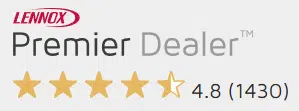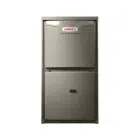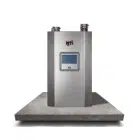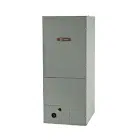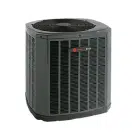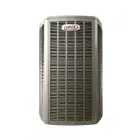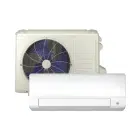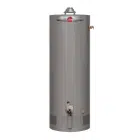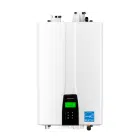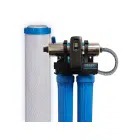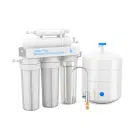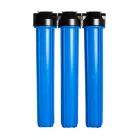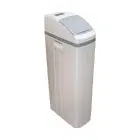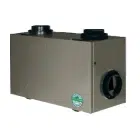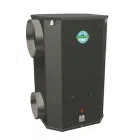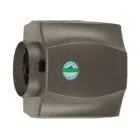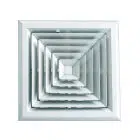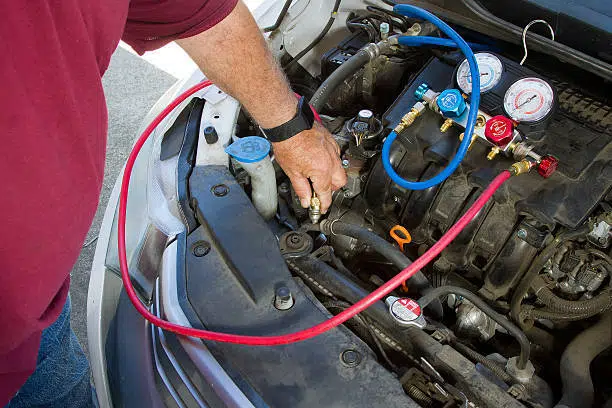
Table of Contents
Hey there, homeowner! If you’re reading this, chances are you’re in the market for a new furnace and torn between renting and buying. It’s a common dilemma, especially here in Canada, where our winters can be brutally cold. Furnaces are essential for keeping our homes warm and cozy, but deciding whether to rent or buy can be tricky. We’re here to help you navigate this decision so you can choose what’s best for you and your home. Let’s dive in!
What is Furnace Rental?
Renting a furnace is pretty much what it sounds like—you pay a monthly fee to use a furnace instead of purchasing one outright. Think of it like renting an apartment instead of buying a house. You get the benefit of the furnace without the long-term commitment of ownership.
When you rent a furnace, the rental company typically handles the installation, maintenance, and repairs. You just have to worry about paying your monthly bill. This can be a great option for those who don’t want to deal with the hassle of upkeep or don’t have the upfront cash to buy a furnace.
Check out our convenient furnace renting terms via the link below.
Renting a Furnace
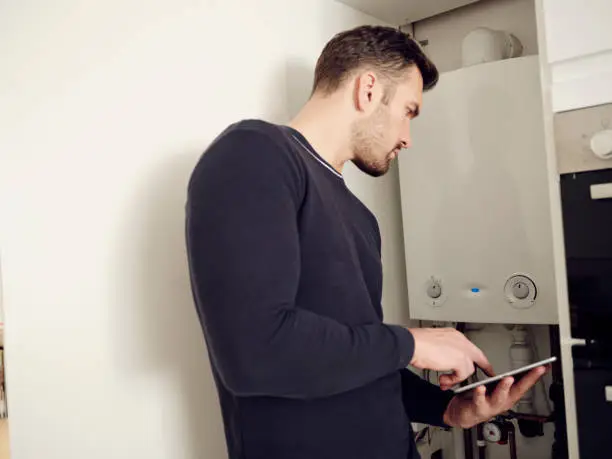
Renting a furnace can be an excellent option for many homeowners. Here are some of the key pros and cons to consider.
Pros
- Lower Upfront Costs: This is the main attraction for many. You can get a new furnace with little to no initial outlay, which can be a game-changer if your old furnace dies unexpectedly.
- Maintenance Included: One of the best parts about renting is that the rental company typically takes care of all maintenance and repairs. This means no worrying about finding a reliable HVAC technician or paying for unexpected repairs.
- Upgrades and Flexibility: Rental contracts often make it easier to upgrade to a newer model. If you like keeping up with the latest technology, renting allows you to do so without a large financial commitment.
- Predictable Monthly Costs: With rental, you know exactly what your monthly expenses will be. This can help with budgeting and avoid any surprise costs.
Cons
- Long-term Costs: While renting might be cheaper initially, it can end up costing more in the long run. Over several years, those monthly payments add up and can exceed the cost of purchasing a furnace outright.
- Contractual Obligations: Renting usually involves a contract, which means you’re committed for a certain period. Breaking the contract early can result in penalties.
- Limited Ownership: At the end of the day, you don’t own the furnace. This means you can’t sell it or benefit from any residual value it might have after many years of use.
In conclusion, renting a furnace is ideal if you want lower upfront costs and less responsibility for maintenance, but be aware of the higher long-term costs and contractual commitments.
Renting a Furnace: Pros and Cons | |
|---|---|
Pros | Cons |
Furnaces and Boilers – Get a new furnace with little to no initial outlay, ideal if your old furnace dies unexpectedly. | Long-term Costs – Can end up costing more in the long run; monthly payments add up over several years and may exceed purchasing costs.
|
Maintenance Included – Rental company covers all maintenance and repairs, reducing hassle and unexpected repair bills. | Contractual Obligations – Usually involves a contract; breaking it early can result in penalties.
|
Upgrades and Flexibility – Easier to upgrade to a newer, more efficient model without a large financial commitment.
| Limited Ownership – You don’t own the furnace, so you can’t sell it or benefit from any residual value it might have after years of use.
|
Predictable Monthly Costs – Consistent monthly payments make budgeting easier and avoid surprise expenses. | Energy Efficiency – A clean unit runs more efficiently, and covers can help keep the unit free from debris, improving energy efficiency.
|
Buying a Furnace
Pros
- Long-term Savings: Buying a furnace can be more cost-effective over time. Once you pay for the furnace, it’s yours, and you won’t have any more monthly payments.
- Ownership: Owning your furnace means you have full control over it. You can choose the model you want and aren’t tied to a rental company’s selection.
- Customization: You have the freedom to choose the furnace that best suits your home’s needs and your personal preferences. You can invest in higher-quality or more energy-efficient models if you choose.
- Increased Home Value: A new furnace can add value to your home. Potential buyers often see a recently installed, high-quality furnace as a big plus.
Cons
- High Upfront Costs: The biggest downside to buying a furnace is the initial cost. Furnaces aren’t cheap, and paying for one outright can be a significant expense.
- Maintenance Responsibilities: When you own your furnace, you’re responsible for all maintenance and repairs. This means finding and paying for a reliable HVAC technician when something goes wrong.
- Replacement Costs: Furnaces don’t last forever. Eventually, you’ll need to replace it, which means another big expense down the line.
- Depreciation: Like all appliances, furnaces depreciate over time. This means that your investment will lose value as the years go by.
To sum up, buying a furnace can be more cost-effective and offer greater control over your heating system, but it requires a significant upfront investment and ongoing maintenance responsibilities.
Buying a Furnace: Pros and Cons | |
|---|---|
Pros | Cons |
Long-term Savings – More cost-effective over time with no more monthly payments once purchased. | High Upfront Costs – Significant initial expense to buy a furnace outright.
|
Ownership – Full control over the furnace, including model choice and not being tied to a rental company’s selection. | Maintenance Responsibilities – Responsible for all maintenance and repairs, requiring finding and paying for a reliable HVAC technician.
|
Customization – Freedom to choose the furnace that best suits your home’s needs and preferences, allowing investment in high-quality or energy-efficient models.
| Replacement Costs – Need to replace the furnace eventually, leading to another significant expense.
|
Increased Home Value – A new furnace can add value to your home, appealing to potential buyers. | Depreciation – Furnace depreciates over time, meaning the investment loses value as the years go by.
|
Renting Vs Buying A Furnace: Cost Comparison

When deciding whether to rent or buy a furnace, it’s crucial to consider the costs involved.
- Initial Costs: When comparing initial costs, renting is the clear winner. Renting typically requires little to no money down, while buying a furnace means a significant upfront investment.
- Long-term Costs: Over the lifespan of a typical furnace (15-20 years), buying generally works out to be cheaper. Even though renting spreads out the cost over many years, those monthly payments add up and can exceed the cost of purchasing a furnace outright.
- Hidden Costs: Renting can come with hidden costs, such as contract termination fees or charges for additional services not covered by the rental agreement. When buying, hidden costs might include unexpected repair bills or the cost of regular maintenance if you don’t have a service contract.
So, while renting offers lower initial costs, buying a furnace is often more economical in the long run. Be sure to consider all potential hidden costs in both scenarios.
Find out how much furnace installation costs in our comprehensive guide via the link below.
https://thehvacservice.ca/how-much-does-a-furnace-installation-cost/
Main Factors You Should Consider
When deciding whether to rent or buy a furnace, several personal factors also come into play.
Financial Situation: Your financial situation plays a big role in this decision. If you have the money to buy a furnace upfront, you’ll likely save money in the long run. But if cash is tight, renting can be a more manageable option.
Home Ownership Duration: How long do you plan to stay in your current home? If you’re planning to move in the next few years, renting might be more cost-effective. But if you’re in your forever home, buying could be the better option.
Energy Efficiency: Newer furnaces are generally more energy-efficient. If you’re concerned about energy costs and your carbon footprint, consider how often you might want to upgrade to a more efficient model. Renting can make frequent upgrades easier.
Maintenance Preferences: Are you handy or prefer to handle things yourself? If you don’t mind managing maintenance and repairs, buying might be for you. If you’d rather someone else take care of it, renting is a better choice.
Technological Advancements: Furnace technology is always improving. If you like having the latest features and highest efficiency, renting can make it easier to upgrade more frequently without the hassle of selling and buying.
Conclusion
In summary, renting a furnace is ideal for homeowners who prefer lower upfront costs, included maintenance, and the flexibility to upgrade easily. This option suits those on a tight budget or who plan to stay in their home for a shorter period. On the other hand, buying a furnace is better for those who can afford the higher initial investment and want to benefit from long-term savings, increased home value, and full control over their heating system. If you prefer ownership and are planning to stay in your home for many years, purchasing is likely the better choice.
For expert advice and competitive terms on both renting and buying furnaces, contact HVAC Service Solutions via the link below. We offer attractive rental terms and a wide selection of high-quality furnaces to meet your needs.
Frequent Asked Questions
What are the main advantages of renting a furnace?
Renting a furnace appeals to homeowners primarily due to its lower upfront costs. Unlike purchasing, where a significant initial investment is required, renting often involves little to no upfront payment, making it accessible for those on a tight budget or facing unexpected furnace failures. Additionally, maintenance and repairs are typically included in the rental agreement. This means you won’t have to worry about finding a reliable HVAC technician or budgeting for unexpected repair bills, providing peace of mind and financial predictability. Renting also offers flexibility in terms of upgrades. Many rental contracts allow for easier transitions to newer, more efficient models, which can be appealing if you prefer having the latest technology without a substantial financial commitment. Moreover, rental agreements come with predictable monthly costs, simplifying budgeting by eliminating surprises and fluctuations in expenses.
What are the main disadvantages of renting a furnace?
Despite its benefits, renting a furnace may result in higher long-term costs compared to buying. While the monthly payments are predictable, they can accumulate over time and potentially exceed the total cost of purchasing a furnace outright. Another drawback is the contractual obligations involved. Rental agreements typically span several years, and breaking these contracts prematurely can lead to penalties or fees. Furthermore, since you don’t own the furnace, you cannot capitalize on any residual value it may have after years of use. This lack of ownership also means you cannot sell or transfer the furnace if you decide to move or upgrade independently of the rental company’s offerings.
What are the main advantages of buying a furnace?
Buying a furnace offers several advantages, foremost among them being long-term savings. Once you purchase the furnace, you eliminate ongoing monthly payments associated with renting, making it more cost-effective over time. Additionally, ownership provides full control over your heating system. You can choose the exact model that suits your home’s needs and preferences, without being limited to the options provided by a rental company. This also allows you to invest in higher-quality or more energy-efficient models that can potentially reduce your utility bills and environmental impact. Moreover, a new furnace can increase the resale value of your home, as it is seen as a desirable feature by potential buyers.
What are the main disadvantages of buying a furnace?
The main disadvantage of buying a furnace is the high upfront cost. Purchasing a furnace outright requires a significant initial investment, which may not be feasible for everyone, especially when unexpected replacements are needed. Additionally, owning a furnace means taking on full responsibility for maintenance and repairs. You’ll need to find and pay for a reliable HVAC technician when issues arise, adding to the overall cost of ownership. Over time, furnaces inevitably wear out and require replacement, leading to another significant expense down the line. Lastly, like all appliances, furnaces depreciate over time, meaning your investment loses value as the unit ages.
Which option is more cost-effective in the long run: renting or buying?
In most cases, buying a furnace proves more cost-effective in the long run. While renting offers lower upfront costs and predictable monthly payments, these accumulate over time and can exceed the total cost of purchasing a furnace outright. Buying eliminates monthly payments once the initial purchase is made, reducing overall expenses over the furnace’s lifespan. Moreover, ownership allows you to benefit from potential increases in home value and the freedom to choose more energy-efficient models that can lower utility bills.
How do I decide whether to rent or buy a furnace?
The decision between renting and buying a furnace hinges on several factors. Consider your current financial situation—are you prepared for a significant upfront cost, or do you prefer lower initial expenses and predictable monthly payments? Also, think about your long-term plans for the home. If you anticipate staying for a shorter period, renting may be more suitable due to its flexibility and included maintenance. On the other hand, if you plan to stay long-term and value ownership, buying provides cost savings and control over your heating system’s customization and maintenance.
What is included in a furnace rental agreement?
A furnace rental agreement typically includes the furnace unit itself, professional installation, regular maintenance, and repairs. Rental agreements vary by provider, but most cover maintenance to ensure the furnace operates efficiently and reliably throughout the contract period. Some agreements may also offer options for upgrading to newer models as technology advances, providing flexibility and peace of mind.
How long do furnace rental contracts usually last?
Furnace rental contracts typically span several years, commonly ranging from 5 to 15 years depending on the provider and specific terms of the agreement. Longer contracts may offer more favorable monthly payments or additional services, such as extended warranties or upgraded models. It’s essential to review the contract terms carefully to understand the commitment and any penalties associated with early termination.
Can I upgrade my furnace if I choose to rent?
Yes, many furnace rental agreements include provisions for upgrading to a newer model during the contract period. This flexibility is one of the key advantages of renting. As technology advances and more energy-efficient models become available, you can typically request an upgrade through your rental provider. This allows you to benefit from improved performance and potentially lower energy costs without the financial burden of purchasing a new furnace outright. It’s important to review the specific terms of your rental agreement to understand how upgrades are handled, including any associated costs or adjustments to your monthly payments.
How can I get started with renting or buying a furnace from HVAC Service Solutions?
Getting started with HVAC Service Solutions for renting or buying a furnace is straightforward. Begin by contacting our team to schedule a consultation. During this consultation, our experts will assess your heating needs, discuss your preferences, and provide personalized recommendations based on your budget and home requirements. For renting, we offer competitive terms that include professional installation, maintenance, and repair services throughout the rental period. Our goal is to ensure you have access to high-quality furnaces that meet your specific heating needs, whether you choose to rent or buy. We’re committed to providing exceptional service and reliable heating solutions to enhance your home comfort and energy efficiency.
Share
